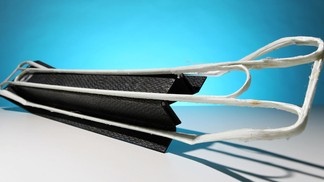EELCEE, an EPFL spin-off firm, has developed a new technique that enables fabrication of composite parts in large quantities and in a rapid manner.
 Composite Parts Will Lead to Greener Cars
Composite Parts Will Lead to Greener Cars
The technique will lead to lighter, greener cars that burn less fuel and emit less carbon dioxide (CO2). Thus, the automotive sector stands to gain significantly from this application of composite materials.
Till date, composite materials based on resins and fibers have been used only for Formula 1 racing, sailing or aeronautics due to the complexity involved during production. However, the automotive industry has been interested to mass produce these materials for a long time. But the time required to produce these composite components has been a major issue, which can now be overcome by the EELCEE technology.
A team led by Jan-Anders Månson from the PFL’s Laboratory of Composites and Polymers has developed the technology based on the pressure injection technique used for plastic molding. To make the parts from composites, the molds are first prepared and then the required filaments are produced for fiberglass materials or carbon fiber. Later, these materials are combined with resin to form an ultra-light, flexible and thin structure. At the end, another resin layer is added to the mold.
The use of composite parts can save weight from 20% to 40% whne compared to metals. The pressure injection process is efficient and extremely fast and it significantly increases the number of components produced per year by an assembly line. In addition, it reduces the production costs by 10% on average and prevents complex welding and assembling work.
EELCEE has tested the technology on car seats and suitcases and it is expected that car frames, doors and bumpers made of composite materials may be seen in 2013.